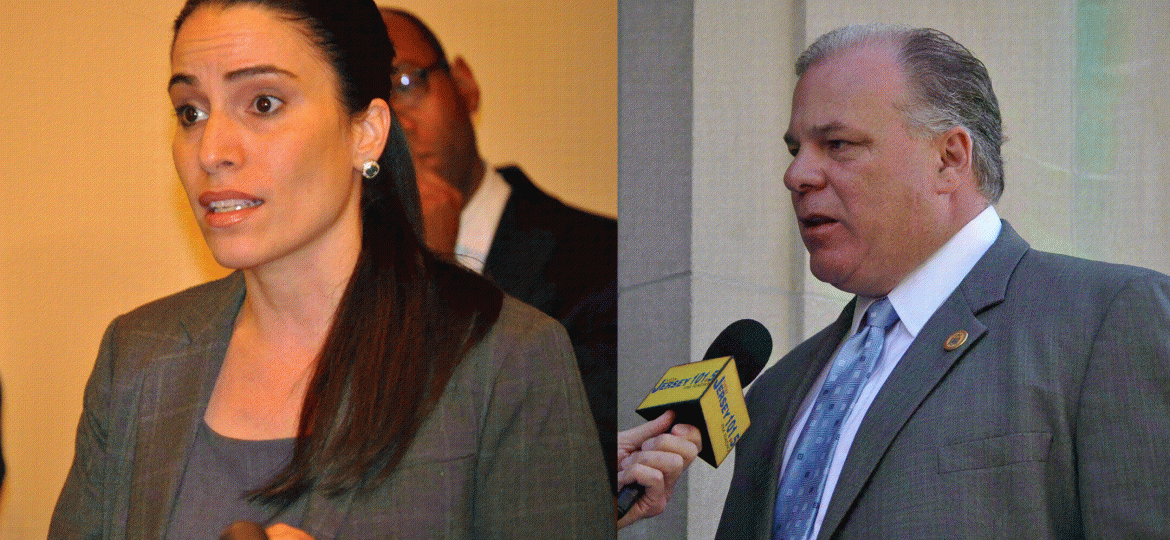
Concurrent Resolution Would Create Commission To Develop A Five-Year Plan To Reach Full Funding
TRENTON – The Senate voted today to create a special commission that would develop a plan to provide full funding for all New Jersey schools, reforming a system that currently underfunds 80 percent of the state’s school districts. Sponsored by Senate President Steve Sweeney and Senator M. Teresa Ruiz, the bill, SCR-119, would have the Senate and Assembly work together to create the six-member “State School Funding Aid Fairness Commission” and give it until February 1, 2017 to develop a five-year plan to fully fund the education formula for every school system.
Senator Sweeney said he expected the plan to include increased state funding of $100 million annually over the five-year timeframe.
“New Jersey’s school funding has grown less fair and less adequate,” said Senator Sweeney. “We have some school districts that are spending 50 percent more than they should be and some that are spending 50 percent less. Some towns are receiving three times the amount of aid they should be and some are receiving only one third. We need a plan to restore fairness and equity to New Jersey’s school aid formula that doesn’t shortchange our children and doesn’t put upward pressure on local property taxes.”
“Students across the state deserve access to a quality education and that means ensuring adequate funding for every child. This proposal seeks to bring all schools to 100 percent of adequacy, providing districts with the resources they need to give students a strong foundation for academic success,” said Senator Ruiz, chair of the Senate Education Committee. “This is a responsible plan that returns to the mission of the school funding formula that money follows the child. We know the transition must be done in a deliberative manner, and we are committed to ensuring that happens.”
Replacing the legislation previously introduced, the new bill will take the governor out of the process with a concurrent resolution needing approval by the Senate and Assembly but not the governor’s signature. It also expands the membership of the commission from four to six with specific representation from a teachers’ union and a professional educational organization. The appointments would be made by the Democratic and Republican leaders in both houses.
The bipartisan Senate vote was 29-6.
Assemblywoman Joann Downey and Assemblyman Eric Houghtaling will sponsor the legislation in the Assembly.
“We removed the governor from the commission process because it is clear that he is pursuing a completely different plan based on a misguided philosophy that would have a destructive impact on educational opportunity,” said Senator Sweeney. “He obviously has a very different idea of what constitutes fairness in education funding. He wouldn’t play a constructive role in this process so the Legislature will move forward with educators, experts and advocates to develop a constructive reform plan.”
The commission will put the plan into legislation that will have to be approved or rejected in its existing form with up-or-down votes by the Legislature. The school funding formula should be reviewed every two years, according to the legislation.
The panel will consist of six public members, with one member appointed by the Senate President, one by the Speaker of the General Assembly, one named by the Senate Minority Leader and another by the Assembly Minority Leader. In addition, the Senate President and Assembly Speaker would jointly select a member representing a teacher’s union and the Minority Leaders from the two houses would name a representative from a professional education association.
The members must have knowledge and experience in public school and state budgeting and finance. The commission will be staffed by the Office of Legislative Services.
The commission will conduct hearings throughout the state. It will also study the impact of adjustment aid and the enrollment growth cap, assess the impact of tax growth on the ability of school districts to fund their schools, evaluate special education services, look at per-pupil administrative costs, the fairness of the current equalized valuation and income measure, and the impact of property tax abatements. It will also look for recommendations to lower property taxes.
Senator Sweeney, Senator Ruiz, Democratic legislators, school officials from throughout the state and a host of education advocacy organizations have participated in roundtable discussions, tours of local schools and meetings to gain input on the initiative and to generate support for the plan, gaining widespread support in the process.

